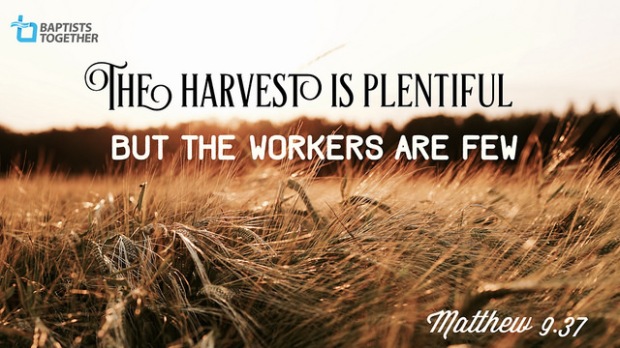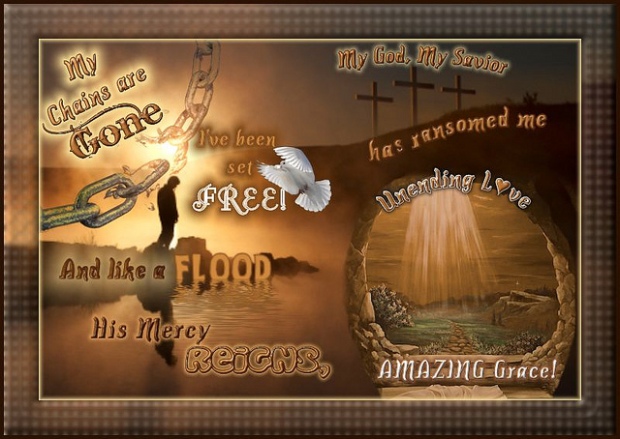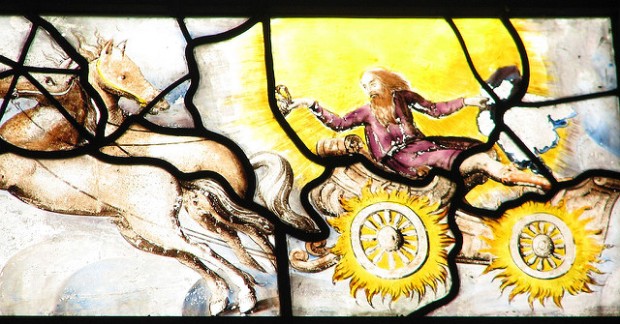 START WITH SCRIPTURE:
START WITH SCRIPTURE:
Matthew 9:35-10:8
CLICK HERE TO READ SCRIPTURE ON BIBLEGATEWAY.COM
OBSERVE:
Jesus appears to have a very deliberate vision for his ministry. His movements from the beginning of his ministry reveal careful planning:
- He inaugurates his ministry when he is baptized by John the Baptist in the Jordan — and his divine credentials are certified by the descent of the Holy Spirit and the voice of the Father, affirming: “This is my beloved Son, with whom I am well pleased” (see Matthew 3:16-17).
- He is led by the Spirit into the wilderness to be tested by the devil. The description that he is led by the Spirit could easily be a covering description of all of his ministry from this point on. And his ordeal in the wilderness prepares him for the challenges to come (see Matthew 4:1-11).
- He begins his preaching ministry in Galilee, and calls the first four disciples to leave their fishing nets and fish for people. He then begins a busy campaign throughout the towns and villages of Galilee, beginning in the synagogues — preaching, teaching and healing. His initial message is simple and direct:
Repent! For the Kingdom of Heaven is at hand (see Matthew 4:12-25). - Drawn by his preaching, and especially the extraordinary reports of his ministry of healing and exorcism of demons, great crowds begin to be drawn to him. This provides the audience and the occasion for his first major teaching narrative in the Gospel of Matthew — The Sermon on the Mount (Matthew chapters 5-7).
- In Matthew 8 and 9, we see Jesus engaged in particular miracles —cleansing a leper, healing a Roman centurion’s servant of paralysis (from a distance, no less!), healing Simon Peter’s mother-in-law of a fever. He also calms a storm while he and the disciples are crossing the Sea of Galilee in a fishing boat. And he begins to clarify for those who wish to become his followers that there is a cost to discipleship.
- Tensions are also developing — when he casts a multitude of demons out of a hapless Gentile into a herd of pigs in the pagan district in the Gergesenes, the people beg him to leave, presumably because they are terrified (Matthew 8:28-34). The Pharisees are beginning to question his authority with increasing criticism, and also question the company that he keeps with tax collectors and sinners (Matthew 9:1-13). Even John the Baptist’s followers question why he doesn’t fast like they do! (Matthew 9:14-17).
- All of these events culminate in several signature healings — the woman who has had an issue of blood for twelve years; Jairus’ twelve-year-old daughter whom he raises from the dead; two blind men receive their sight; and a demon is cast out of a mute man, who then is able to speak. The Pharisees react to all of this with a damning accusation:
By the prince of the demons, he casts out demons. (Matthew 9:18-34).
All of these events bring Jesus and his disciples to this moment in today’s Gospel lection:
Jesus went about all the cities and the villages, teaching in their synagogues, and preaching the Good News of the Kingdom, and healing every disease and every sickness among the people. But when he saw the multitudes, he was moved with compassion for them, because they were harassed and scattered, like sheep without a shepherd.
Jesus is active and busy with his ministry, and he is driven by his compassion. He sees that he himself is the shepherd of these multitudes, but they are harassed by sickness, demons, and their sins, and they are scattered like a flock of sheep pursued by wolves or thieves.
It is time for the next phase of his ministry plan. First, he exhorts his own disciples to pray:
Then he said to his disciples, “The harvest indeed is plentiful, but the laborers are few. Pray therefore that the Lord of the harvest will send out laborers into his harvest.”
This is a powerful metaphor. Jesus sees that there are multitudes who are in need of ministry (the plentiful harvest), but he will need reinforcements in order to reach them (the harvesters).
Second, he begins to answer his own command to pray for laborers:
He called to himself his twelve disciples, and gave them authority over unclean spirits, to cast them out, and to heal every disease and every sickness.
We are introduced by name to the twelve who will form the nucleus of his new “Kingdom Movement.” And he is giving them authority to do exactly what he has been doing. He is multiplying his ministry exponentially.
At this stage of their ministry, though, the disciples are restricted to working among the Jews. He expressly says that they are not to go among the Gentiles or even enter their cities. This is interesting because he himself has ministered to a Roman Gentile, and gone into the district of the Gergesenes. Clearly, this is an interim step in their “internship.” At the end, they will be told to go and make disciples of all nations — but not yet.
They are to go to the lost sheep of the house of Israel for the time being. This seems to be consistent with the step-by-step goals of Jesus. He recognizes that he is the fulfillment of the Hebrew law and prophets (Matthew 5:17-20). Israel was a kingdom of priests (Exodus 19:6) who were originally called to be a light to the Gentiles for the salvation of the earth (Isaiah 49:6). Therefore, his first mission is to reform and renew Israel by calling them to repentance. Bear in mind that the disciples were all Jews sent to preach to their fellow Jews.
Finally, he tells them how they are to minister — by following his example:
As you go, preach, saying, ‘The Kingdom of Heaven is at hand!’ Heal the sick, cleanse the lepers, and cast out demons.
All of this is possible because of his grace. As they have received forgiveness, healing, and hope from him, so they are to give:
Freely you received, so freely give.
APPLY:
Perhaps the best place to begin with the application of this passage to our lives is with the last sentence of the Gospel lectionary reading:
Freely you received, so freely give.
This sentence is packed with both doctrine and practice. We have received God’s grace as a free gift. With that gift come forgiveness, wholeness, spiritual growth, spiritual gifts, the fruits of the Spirit, and — as the saying goes — “all this and heaven too!”
The most natural response when we receive God’s grace is in turn to share what we have received with others. This is the sign of healthy disciples.
And we also receive in this passage guidance about how we are to follow the model of ministry provided by Jesus:
- First, we are to diagnose the need. Like the people of Jesus’ time, people of our time are also harassed and scattered, like sheep without a shepherd.
- Second, we are to pray for laborers who will help to bring in the plentiful harvest of people who desperately need hope and healing. And we must be aware that as we pray for those laborers we may become the answer to our own prayers, as God calls us to be laborers!
- Third, those who are called to be in ministry have a clear mandate from Jesus — to preach the Gospel that the Kingdom of God is at hand. Moreover, we are to demonstrate this Gospel through healing the sick, cleansing the lepers (those who are outcasts and pariahs), and casting out demons.
This is the message and the method that spread the Gospel from a provincial city in Roman-occupied Judea throughout the entire Roman Empire, and even beyond. By 313 A.D. Christianity was recognized as a legal religion in the Roman Empire, and soon became the dominant religion in the Empire! And adherents to Christianity now comprise one third of the entire global population.
RESPOND:
I took part in an ongoing ministry colloquium some years ago. One of the requirements of the class was that we all had to write a “ministry plan” according to certain specifications. I found myself a little unenthusiastic, to be honest.
For one thing, I thought we already had a “ministry plan!” When I read Matthew 9:35-10:8, and the Great Commission in Matthew 28:16-20, and Acts 1:8, and other passages from Scripture, I see the definite shape of a “ministry plan.”
A few years ago I developed a small group ministry in my church, based in part on the old Methodist Classmeetings. (My groups were called “ABCD Groups” because they were the “ABC’s” of discipleship — Accountability, Bible Study, Caring, Doing. For more information, please click on this link: ABCD’s of Wesleyan Discipleship).
But in fact, I hoped that my model went back much farther than that, to the small group that we know as the “Twelve Disciples.” Jesus gathered the twelve, and then spent time discipling them — teaching them by word and example how they were to preach and offer ministry in his name. And then he sent them out to do just that!
And it is very important to remember that these fishermen and carpenters, and a tax collector, all had names and personalities:
Simon, who is called Peter; Andrew, his brother; James the son of Zebedee; John, his brother; Philip; Bartholomew; Thomas; Matthew the tax collector; James the son of Alphaeus; Lebbaeus, who was also called Thaddaeus; Simon the Canaanite; and Judas Iscariot.
Not to neglect the feminine followers of Jesus:
With him were the twelve, and certain women who had been healed of evil spirits and infirmities: Mary who was called Magdalene, from whom seven demons had gone out; and Joanna, the wife of Chuzas, Herod’s steward; Susanna; and many others; who served them from their possessions (Luke 8:1-3).
Jesus had a small group ministry and a preaching and feeding and healing ministry with the multitudes. That still seems to be a pretty good model of a “ministry plan” to me.
Lord, you call us to follow you as your disciples, and you teach us and form our faith, and then send us out. May we continue to have your compassion for the sheep who are without a shepherd, and we do pray that you, the Lord of the harvest will send out laborers into your harvest. Amen.
PHOTOS: "Matthew 9:37" by Baptist Union of Great Britain is licensed under a Creative Commons Attribution-NonCommercial-NoDerivs 2.0 Generic license.






